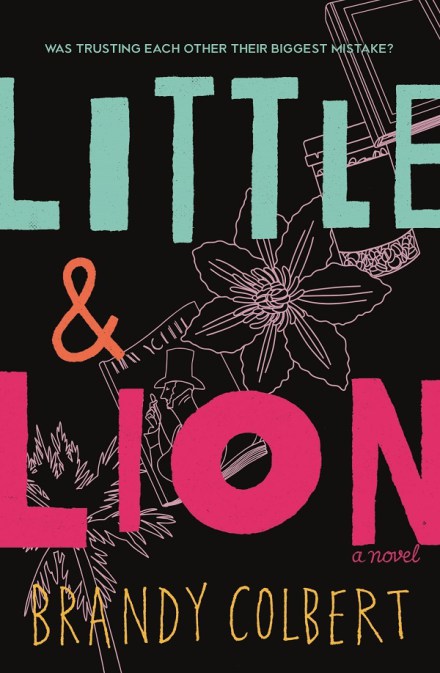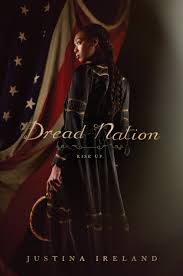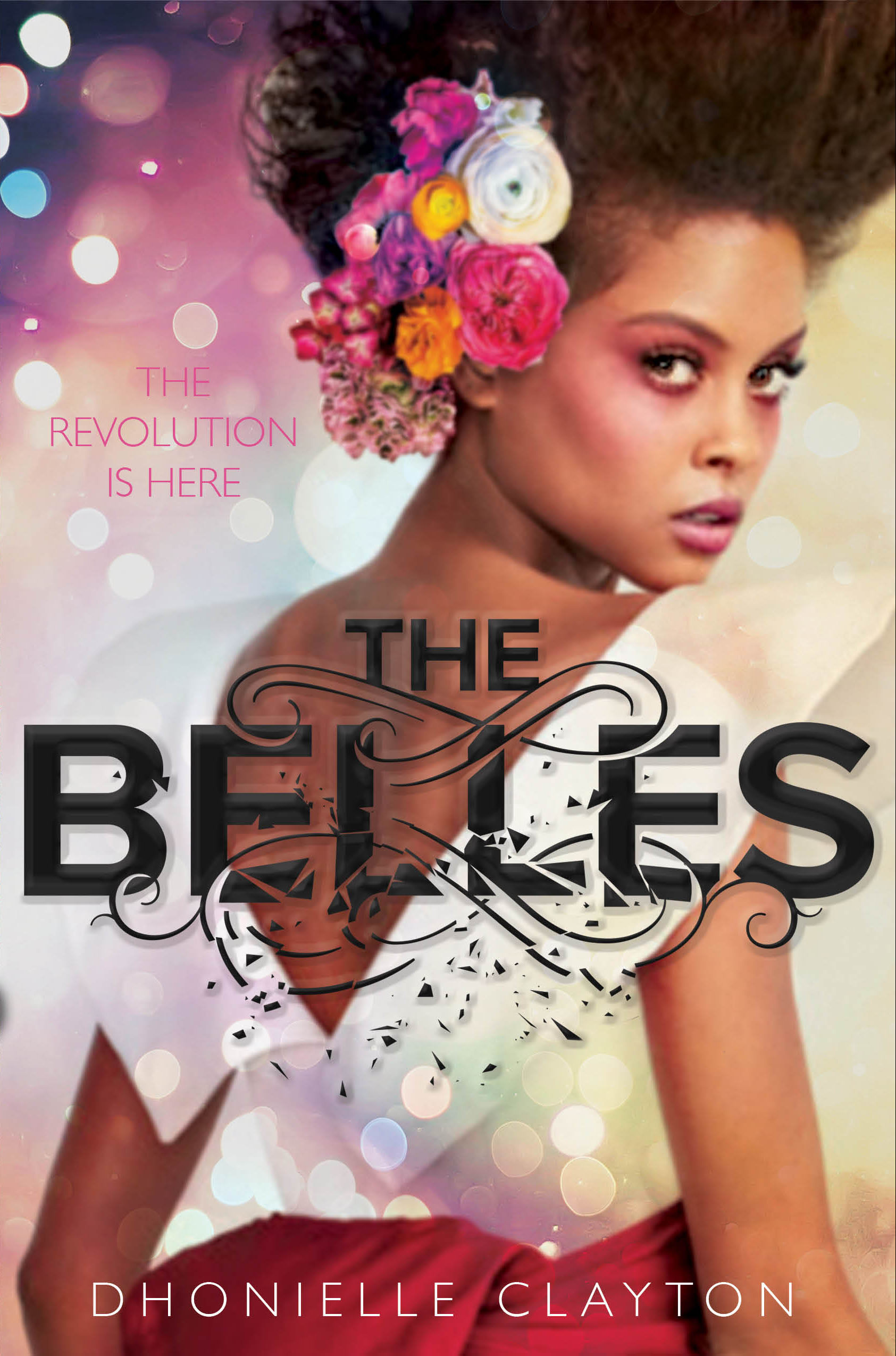We’re pretending that it’s Leap Year by offering day two of our YA Panel with authors Justina Ireland (Dread Nation), Brandy Colbert (Little & Lion) and Dhonielle Clayton (The Belles). Check out the convo as they discuss being vocal on social media and getting on their soap boxes.
BBS: All of you are active on social media. Is anyone ever afraid to be as honest as they are about publishing, politics and culture because it may impact their relationship with publishers, gatekeepers or readers?
 Brandy: I’m definitely the least outspoken online from this group. But everyone who’s met me knows I will say anything in person.
Brandy: I’m definitely the least outspoken online from this group. But everyone who’s met me knows I will say anything in person.
Dhonielle: I used to be afraid and I never really go in unless you make me BIG MAD. Now, I don’t care as much. I’m like…I’m little and y ‘all think I’m cute and that you can come at me – so nah, sometimes you need a reminder. I will clap back!
Brandy: I just feel like conversations online lose a lot of nuance and it can be hard to read tone and intention.
Justina: I think we need both types, though. I mean, Brandy is going to get invited to places I won’t because people won’t see her as a threat and then she can let me know what’s what when she’s there.
Brandy: Ooh, good point! And I don’t do it purposely to avoid publisher/gatekeeper backlash. But I know I’m better in person.
BBS: Dhonielle, your clap backs always make me smile because you definitely don’t look like you’d come for someone. Then you do and it’s like – yessss!
Justina: My editor and publisher know what I’m about and I told them that nothing was going to change. I do give my editor a courtesy heads up when I’m about to go in on a Harper book, though. Just so he knows to expect the hate mail.
Brandy: I think it’s ultimately good to be outspoken, but then I always say that whatever you need to know about my thoughts is in my books. And if you need to know more, catch me on a panel or in person somewhere.
Justina: Great point.
BBS: How about the flip side…do you believe being vocal is something readers are going to come to expect from authors, particularly YA authors? Are the days where keeping your own views separate from your body of work gone?
Justina: Oh, most definitely.
Brandy: That’s a great question. I do at least try to re-tweet people I respect and admire who are more eloquent or educated about a topic. So then anyone who comes to my feed knows, for example, that I fully support Colin Kaepernick and his protests.
 Justina: I think that with social media such an integral part of life, people assume you are for the same things they are for unless you speak up. For better or worse. So, I fully expect young readers to reach out to their favorite authors when they read something that offends them and go “WTF?” And I think that is the changing face of critique.
Justina: I think that with social media such an integral part of life, people assume you are for the same things they are for unless you speak up. For better or worse. So, I fully expect young readers to reach out to their favorite authors when they read something that offends them and go “WTF?” And I think that is the changing face of critique.
There’s a section of the population that wants the media they consume to be from people who uphold their values. Authors are going to have to learn to cocoon themselves or accept being more involved in reader response.
Brandy: But then my question is if you cover these topics thoroughly and make your opinion known in your books, is it okay to let other people have the mic online? I do struggle with that as an intensely private person. But I still want it known what I’m about.
Justina: Oh, definitely. It think it takes all kinds.
BBS: Where your book topics are concerned, I can see that. But I’ve seen both Justina and Dhonielle speak out on other topics that wouldn’t necessarily be anything related to what they write. Many authors, now, are so vocal about the political climate. Or feminism. Things that are controversial and have clear “sides.”
Brandy: Those are the conversations I’m having with friends and colleagues but sometimes it just seems like an echo chamber. And I wonder, do we *really* need my voice added to this right now?
Justina: Yeah, I struggle with this because even though I’m vocal online, I’m also very private. I never name my kid or husband, and I mostly talk about stuff that has little to do with my day to day life. But I also think it’s important to look at something and say “That’s not okay, and here’s why.” In publishing, that does tend to be an echo chamber.
I mostly am there to make sure the well meaning white liberals in publishing don’t get too comfortable.
Brandy: And we love ya for it.
BBS: What “soap box” are you on related to publishing, the YA community, librarianship/teachers or anything else connected to getting more of our books out there and recognized?
 Dhonielle: I wanna be on the Tell The Truth soap box.
Dhonielle: I wanna be on the Tell The Truth soap box.
Justina: Go in!
Dhonielle: We have spent so much time catering to white folks feelings and I’m done with that part of the program.
Brandy: I’m on the All of our Stories Matter soapbox. That’s All of our BLACK Stories Matter, in case that wasn’t clear. I sometimes feel the YA community gets a little too comfortable with *only* promoting stories of black pain. And that makes me extremely uncomfortable.
Dhonielle: Preach!
BBS: Someone else said that recently and it just really hit me that a lot of our books ARE about pain.
Brandy: Yes! And my books fit that mold, to some degree. But it seems like some gatekeepers and readers are only comfortable reading books about black people that take them completely out of their neighborhood or comfort zone instead of confronting, say, the liberal racism in their own backyards.
Dhonielle: Preach, Brandy!
BBS: There’s a difference in exploiting that narrative and trying to help kids find a way through what are real experiences in a community. Yes?
Brandy: Exactly. The exploitation is the key difference.
Justina: I’m on the For Us By Us soap box.
Brandy: FUBU!!
Justina: BRINGING IT BACK! That includes promoting and supporting younger Black authors and aspiring Black authors. I would also like to see less stories about Black pain and how awful it is to be Black in general, but I think it’s going to be a while before we get there.
BBS: Well here’s hoping that’s not the case! It was my pleasure to bring these ladies to this year’s 28 Days Later spotlights. If anything said here can help make the publishing journey and overall publishing experience better for writers of color, then I’ve done my job.
